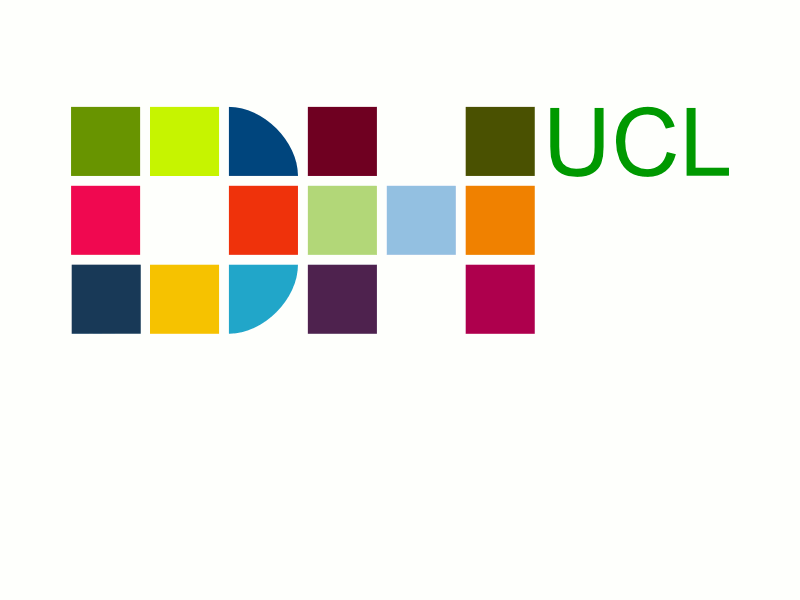The OED definition of the word “hacker” contains two distinct definitions.
hacker /"hak@/ n. me. [f. hack v.1 + -er1.]
1 A person who or thing which hacks (something).
2 spec. An enthusiastic computer programmer or user; a person who tries to gain unauthorized access to a computer or to data held in one. colloq.
hackerdom n. the realm or world of computer hackers
Unauthorized access. It strikes me that my views on how I ended up here – Senior Lecturer at one of the best Universities in the world, and Deputy Director of the UCL Centre for Digital Humanities, is one giant hack. Lack of self confidence aside, as I look around the discipline of Digital Humanities, I see many people like myself. Enthusiastic computer programmers or users, for sure. But wiley, creative, individuals who have taken every unpredictable opportunity available and turned it into an academic career, and as a result, an academic discipline.
Let me explain. Until recently, you couldn’t go to University and train how to be a Digital Humanities.... what? Scholar? Digital Humanist? How would you start? Most paths into professional academe are a series of increasing specialisations. So, you’d turn up to fresher’s week to study English Literature. Somewhere along the line you’d get interested in Modern Poetry. An undergraduate dissertation here, a masters dissertation there, and before you know it, you’re handing in your PhD thesis on Metaphors of Travel in the Works of Elizabeth Bishop. You’re the expert. Now it’s up to you to battle out the job market to find that English Lit position that will let you burrow further into your specialisation.
I don’t think thats too narrow a description of how it happens (although of course, there is serpendipity, the influence of others, the vaguaries of the funding system and jobs market to surf). But Digital Humanities is not like that.
There is not a traditional path in.
I look around the folks who are part of the team at the UCL Centre for Digital Humanities, and we are a motley crew – and all the better for it. The Eng Lit PhD- turned publisher- turned usability expert. The trained and practicing Librarian – turned academic information seeking specialist. The archaeologist- turned museums and the web expert – turned usability expert. The computer-scientist turned-medical physicist – turned manuscript expert. The computer scientist-archaeologist. Me? I’m the art historian-english literature- turned computer science – turned engineering science –turned information science digital classicist (I think).
I’m at risk here of describing Digital Humanities scholars as the freaks and geeks of the academic world, but this is far from negative. For most of us, getting here has been a series of random connections, introductions, jumps from one career structure to the next. Somewhere along the line, you need to know enough about Humanities to talk the humanities talk. Somewhere along the line, you need to have worked up enough programming chops to use, and utilise, computers as (not “like”) a pro. Until the last 4 or 5 years, academic programs that did that just did not exist (and there are still only a few: Alberta, KCL, soon at UCL, for example). Most of the folks who self identify as Digital Humanists and are active in the DH community have picked up their skills through a mixture of backgrounds and challenges. And used their smarts to get access to – and be active in - the academy along the way. Many of those have a love for Digital Humanities, but will still be teaching Chaucer 101 to undergrads in the Eng Lit dept, whilst being a world expert in TEI and overlapping markup. Or teaching databases in the CS department, whilst working on imaging of ancient coins. Or teaching, like me, how the internet works to librarians and archivists, whilst pottering with whatever advanced computational techniques I can get access to for relevant humanities projects. Or the programmer, working on interesting interfaces for projects. Or the database expert, figuring out how to jam those representations of Byzantine seals into a data structure. (This is not just about teaching, but a way of thinking).
Of course, the same goes for that Eng Lit scholar (the expert in Elizabeth Bishop, who gets lumbered with teaching the Comedies of Shakespeare to the freshers) – but the point I am making is this. Our academic discipline does not have the same structure as traditional, more established ones. We do not have the obvious career progressions. We do not have the obvious tenure track. We do not have the obvious places to publish to guarantee that Nobel Prize. We are the academic magpies, the interdisciplinary scholars with one foot in the sciences and one foot in the humanities, creating our own “portfolio careers”. We are hacking our way through both fields, and creating – making - a space where we can talk about the need for, the use for, and the reason for the use of computational techniques in the humanities (whether to benefit the humanities or the computational sciences).
Unauthorized access to the academe? Digital Humanities has a habit of being labelled by others as “service” rather than academic endeavour: those of us undertaking research in this area know too well the steps we take to maintain and reinforce our scholarly position, and the enthusiasm and conviction necessary to maintain and build a career in this area.
Its still all up for grabs, and there is much to be done. I believe there is room here, for many many more scholars to engage with, utilise, develop, and theorize about digital culture (in its purest sense). Most of them still wont get here by following a traditional degree pathway in. There is a specific mindset that is required to be a success in the Digital Humanities community. I’d argue the enthusiasm, challenge to traditional structures, and querying, querying nature fits us squarely within the “academic hacker” label. Digital Humanities as hackerdom. Lets see how far we can get.

